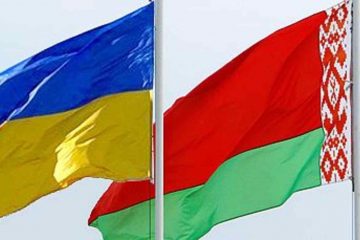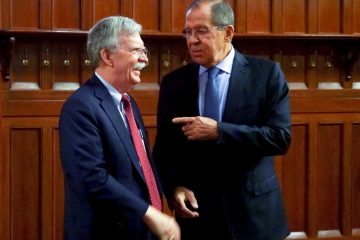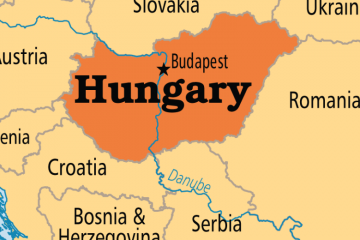Both sides accuse the other of shelling, and water and power shortages in -18C weather raise fears of humanitarian crisis
Shaun Walker
Parts of east Ukraine are on the brink of a humanitarian crisis as the worst violence for a year in the conflict between Kiev and Russia-backed separatists has left up to 19 dead and thousands of people without water and heating in freezing temperatures.
The violence is an early test of Donald Trump’s stated desire for better US relations with Russia. Kiev has watched nervously as Trump has repeatedly praised Vladimir Putin and floated the idea of lifting sanctions.
The conflict in Ukraine has raged for nearly three years and cost more than 10,000 lives. A ceasefire was agreed in Minsk two years ago, and although little progress has been made since on a political solution, large-scale clashes have been rare over the past year.
However, in the last few days both sides have accused the other of using Grad systems, imprecise weapons that rain down multiple rockets over a wide area.
On Wednesday the Ukrainian military said three soldiers had died overnight, and separatist authorities claimed four civilians had been killed.
In a clear sign that US policy towards Russia could indeed be heading for a sharp change of course under Trump, the state department made no criticism of Russia or the separatist side, in contrast to most of its statements in response to similar spikes in violence in the past.
The acting state department spokesman Mark Toner said the US was “deeply concerned” by the violence and called for “an immediate, sustained ceasefire”. However, the statement stopped short of apportioning blame.
Russia’s state newspaper Rossiiskaya Gazeta excitedly noted the change in tone. “Washington is not blaming the unrecognised republics for breaking the ceasefire, is not stating any support for Kiev, is not saying a single word about the role of Russia … Different variations of these elements were, as a rule, a key part of all statements of Ukraine under Barack Obama’s administration.”
The state department statement was markedly different in tone to comments from the US mission to the Organisation for Security and Cooperation in Europe (OSCE), which is staffed by career diplomats and may be out of step with the new mood in Washington.
“Russia and the separatists initiated the violence in Avdiivka,” said the US chargé d’affaires to the OSCE, Kate Byrnes. “We call on Russia to stop the violence, honour the ceasefire, withdraw heavy weapons and end attempts to seize new territory beyond the line of contact.”
There are several rounds of US and EU sanctions on Russia over its annexation of Crimea and actions in east Ukraine. Trump has suggested it could be time to lift them, and has spoken of the potential for a grand deal with Putin. The two leaders spoke by telephone at the weekend and agreed to meet soon.
Ukraine’s president, Petro Poroshenko, said during a meeting with security officials on Tuesday: “The shelling is massive. Who would dare to talk about lifting the sanctions in such circumstances?”
In Moscow, officials accused Kiev of provoking the fighting to derail the rapprochement between Putin and Trump. “Kiev is trying to use the fighting it provoked itself as a pretext to refuse to observe the Minsk agreement and blame Russia,” the foreign policy adviser Yuri Ushakov said on Wednesday.
Fighting has centred on the town of Avdiivka, which lies a few miles from the separatist capital, Donetsk, but is controlled by Ukrainian authorities. The violence has come during a cold snap, with temperatures falling as low as minus 18C.
Giovanna Barberis, Unicef’s representative in Ukraine, said: “Not only are the lives of thousands of children in Avdiivka, and on all sides of the conflict, at risk, but to make matters worse the lack of water and electricity means that homes are becoming dangerously cold and health conditions deteriorating as we speak.”
Also on Wednesday, Ukraine’s defence minister, Stepan Poltorak, claimed a Ukrainian military cargo plane had been shot at from a Russian-held gas rig on the Black Sea. “The shot damaged the plane. The crew were not hurt,” he wrote on Facebook.
So far there has been no comment on the increased violence in Ukraine from Trump’s inner circle. The new US president has repeatedly made favourable statements about Russia and Putin and signalled a very different approach towards Moscow. This month Trump tweeted: “Both countries will, perhaps, work together to solve some of the many great and pressing problems and issues of the WORLD!”
Diplomats who served during the Obama administration have cautioned against making deals with Russia. “For almost three years the United States has worked closely with our European partners to support a peaceful resolution to the conflict through full implementation of the Minsk agreements, including by using sanctions to encourage Putin to comply,” said Dan Baer, formerly the US ambassador to the OSCE. “This should continue to be US policy going forward; anything else would be irresponsible.”





Comments